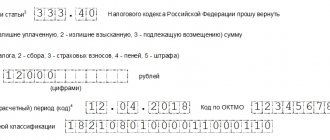Instead of a decision on the case, the party may face the court leaving the application without consideration. That is, the court will issue an act that will not resolve the dispute. But the civil case will end. However, the undoubted advantage of this situation is that the parties retain the right to go to court with the same claim. Unlike situations where the case is terminated.
What to do if the court left the application without consideration? It is necessary to carefully study the grounds. There is an opportunity to cancel leaving an application without consideration. And perhaps this action will save time before the court makes a decision.
Download:
Application for cancellation of determination without consideration
Grounds for leaving a claim without consideration
A motion to leave a statement of claim without consideration is an expressed request by a participant in the trial to terminate the proceedings of the case. But certain grounds are required to grant the request. The conditions are enshrined in Art. 222 Code of Civil Procedure and Art. 148 Arbitration Procedure Code of the Russian Federation.
The Civil Procedure Code identifies the following grounds:
We advise you to read:
- ✅ Request for inclusion of documents in the case materials: sample
- ✅ Statement of claim to invalidate a transaction: sample
- ✅ Application for restoration of a missed procedural deadline
- ✅ Statement of claim for collection of debt on utility bills
- failure to comply with the claim procedure;
- incapacity of the applicant;
- the presence of similar requirements in another court;
- arbitration agreement;
- non-appearance of the parties.
In turn, the AIC identifies the following grounds:
- a bankruptcy claim has been filed;
- recovery of legal costs was requested.
On other grounds, the Arbitration Procedure Code of the Russian Federation coincides with the Code of Civil Procedure of the Russian Federation.
The petition is submitted only after the statement of claim has been accepted for proceedings.
Only the court can leave the application without consideration. The parties can only ask for this. A reasonable question arises: how could the court make a mistake in accepting the claim?
In practice, this means that at the time the claims were filed, the court simply did not know about the existence of legal barriers. For example, the authority was misled about the applicant’s mental health or did not know that the case was being considered in parallel in another court.
A petition is not an obligation, but a right of the parties. The court may leave the application in any case. The request is necessary for situations where the judge does not have the necessary information. Then the party declares them.
The petition can be filed by both the plaintiff and the defendant. In practice, most often the procedural document is drawn up by the defendant. It is he who is interested in leaving the demands unattended by the judge. However, there are cases when the plaintiff himself, through a request, decides to waive his own claims. A similar situation may arise due to an error or misconception.
Features of judicial practice
A ruling to leave the claim without consideration is one of the possible decisions that ends the trial. Its adoption is allowed at any time during the proceedings - as soon as the basis appears. A party to the proceedings can also draw the court’s attention to this. Given the consequences of such a decision, it is clear that the defendant is most interested in it.
From a practical point of view, all grounds (conditions) for leaving a claim without consideration can be divided into 3 groups:
- Circumstances related to violation of the procedural procedure for going to court. This is the largest group of bases.
- Circumstances related to violation of the parties’ agreement on arbitration in the event of disputes.
- Failure of the plaintiff or parties to appear at the court hearing, which, in essence, means ignoring their procedural duties and showing disinterest in the consideration and resolution of the dispute.
Failure to comply with pre-trial dispute resolution procedures
In recent years, procedural legislation has noticeably increased the role and importance of pre-trial resolution of disagreements. The main procedure is the claim procedure, which usually boils down to the preparation and submission of a claim, and in response - voluntary fulfillment of the requirement, sending a written refusal or concluding a compromise agreement. Within the framework of relations with authorities, the main procedure for pre-trial settlement is instantaneous, in which, before going to court, a procedure for appealing decisions, actions, or inactions to a higher authority takes place.
The decision to leave the claim without consideration with reference to non-compliance with the pre-trial procedure, as a rule, is made by the court when analyzing the received application and its annexes. This is made possible by the absence of relevant documents in the appendices to the claim confirming the filing of the claim or complaint and the receipt of a response to them. But a later decision is also possible. This happens, for example, when the defendant refers to the fact that he did not receive the claim. Sometimes plaintiffs are in too much of a hurry and go to court without waiting the due date for receiving a response to the claim or a decision on the complaint.
Duplicate claim
Similar claims cannot be considered twice. And if one is already under trial, the second will be left without consideration. Everything seems to be simple and clear. But this basis applied by the court is often disputed. As a rule, the court's position regarding the identity of the subject or the basis of the claim is appealed. The claims may be similar, but not identical. To leave a claim without consideration on the basis under consideration, a set of conditions is required: proceedings on the claim are already underway in another court, its participants are the same parties, the claim has the same grounds and the same subject (requirements) as the application, which is left without consideration.
If duplication of claims is established and the proceedings are completed on this basis, it is impossible to eliminate the circumstances on which such a decision was made. You will have to wait for the completion of the previously started process or appeal the decision to leave the claim without consideration.
Missing court hearings
Failure of parties to appear in court is common practice.
But if the defendant’s behavior can be considered a kind of response to the claim, then the plaintiff’s skipping meetings looks like ignoring the lawsuit he initiated. To apply the ground of repeated failure of the plaintiff or parties to appear in court, a set of conditions is required:
- the parties (or the plaintiff) did not ask (or petition) for the case to be considered in their absence;
- the parties (or the plaintiff) were notified (summoned to appear in court) at least twice about the hearings, and this was done properly (there are notices, postal marks, etc.);
- the parties (or the plaintiff) failed to appear at the court hearing twice and did not report the reasons for the failure to appear;
- the defendant does not require consideration of the case on the merits (only in the case where the claim is left without consideration due to the plaintiff’s failure to appear).
Missing meetings is the only ground that allows you not to appeal the ruling, but to cancel it. This is done at the request of the interested party. The request is considered by the court that made the decision. A mandatory condition for a positive decision (cancellation of the ruling and resumption of the process) is proof of (1) the presence of valid reasons for failure to appear in court and (2) the inability to timely inform the court about these reasons.
The claim was filed by an incapacitated person or a person who did not have the right to sign or file it
The rights of incapacitated citizens are protected in courts by their legal representatives. The prosecutor's office has the right to file a claim on behalf of such citizens and in their defense. But such citizens themselves can go to court only in one case - filing a claim to restore legal capacity. They have the right to file a petition to restore the statute of limitations if we are talking about the specified claim.
As for persons unauthorized to sign (file) a claim, the error (violation) may be as follows:
- The power of attorney for the representative is missing, not attached to the claim, not included in the case, or incorrectly executed. The power of attorney must expressly state the right to sign and sue.
- The person filing a claim on behalf of the organization does not have the authority to do this, or he has the authority, but it is not officially confirmed or is not formalized correctly.
Whatever the reason applied by the court for leaving the claim without consideration, such a decision does not deprive the right to judicial protection. In some cases, it will be necessary to wait for the result of other proceedings, including arbitration. In others, to correct the mistakes made and re-file the claim. If the problem is excused absence from hearings, it is enough to ask the court to cancel the decision to end the process, and it will be resumed.
Rules for drawing up a petition
A petition to leave a filed claim without consideration is drawn up in free form. The law does not stipulate special requirements for the execution of a procedural document. However, in practice certain requirements have developed. This is due to the fact that courts often have to deal with documents whose contents cannot be taken seriously.
Form requirements:
- written form;
- clear and readable handwriting;
- business style;
- specifics, no water.
Can be printed or handwritten. The petition can be written directly at the court hearing, if there is time.
The request can be expressed orally, but the court will require the provision of a written document, since it must be attached to the case.
Content requirements:
- the text is divided into parts;
- requisites;
- base;
- date and place of compilation.
Conventionally, the text of the petition can be divided into three parts:
- introductory;
- main;
- final.
The introductory part contains details. This is mandatory information about the parties to the dispute and the court in which the case is being heard. Without details, there is no legal force of the document. The data is written in the upper right corner of the page. After writing the details, the title of the text follows. The name of the document is written in the center.
Don't forget to write down the case number. Judicial officials can easily confuse documents. The number will not allow them to do this.
The main part contains the circumstances referred to by the applicant. They prove specific grounds on which the claim can be left without consideration. Otherwise, the request will not be granted. It is necessary to refer and explain to the court why the plaintiff’s demands should be ignored. Here it is also necessary to show the legal justification, that is, references to laws and other acts.
The final, or pleading, part contains the applicant’s request to the court. It begins with the words “Please...”. Next comes the request itself, that is, leaving the statement of claim without consideration.
At the end of the text there is a signature and date of compilation. It is recommended to make a separate “Applications” section in front of them. In practice it is almost always present. In 99% of cases, the applicant must refer to the facts to prove the impossibility of considering the case. For example, if the plaintiff is incapacitated, then a reference to a mental health certificate can be made. Of course, if it is available.
Price: 45,000 rub.
Hello Hamlet! Exactly. If this does not happen, it is necessary to challenge the judge due to possible bias. If the judge “closed” the case, then he no longer has the right to consider it.
Hello! My opinion is that the process starts all over again, since civil proceedings oblige the judge to start the hearing from the beginning every time.
From the point to which they reached at the time of the decision to leave without consideration. Cases when a case is considered from the very beginning are prescribed in the APC (Civil Procedure Code). This case is not one of those.
I disagree, colleague! In this case, the process cannot begin with a debate. I don’t understand the situation at all when the court got to the debate stage, announced a break, and then for some reason did not consider the case on its merits, but left it without consideration -))))
In general, according to the rules of Part 3 of Article 157 of the Code of Civil Procedure, the court hearing in each case takes place continuously, with the exception of the time designated for rest. According to Art. 222 Code of Civil Procedure of the Russian Federation, part 1. If the application is left without consideration, the proceedings end with a court ruling. And at least Art. 222 and 223 of the Code of Civil Procedure of the Russian Federation does not clearly indicate that the trial, after resumption, begins again, I see no obstacles to non-application by analogy of Art. 169 of the Code of Civil Procedure of the Russian Federation, which prescribes that if a case is adjourned, the trial of the case begins again. That is, the procedures established by law (Articles 160-190 of the Code of Civil Procedure) must be carried out by the court anew. At the same time, I believe it is possible to apply Part 2 of Article 169 of the Code of Civil Procedure of the Russian Federation if examinations were previously carried out, witnesses were questioned, etc., that is, “If the parties do not insist on repeating the explanations of all participants in the process, they are familiar with the case materials, including the explanations of the participants in the process given earlier, the composition of the court has not changed, the court has the right to provide the participants in the process with the opportunity to confirm previously given explanations without repeating them, supplement them, and ask additional questions.”
Well, Julia, why they got to the point of debate, and then the court left it without consideration, can be explained simply: it was at that moment that the circumstances were revealed that were the basis for leaving it without consideration. Grounds for application of Art. 169 of the Civil Procedure Code by analogy, I do not see here. Here we are dealing with a determination that was canceled by a higher authority (i.e., it’s as if it never existed). What grounds are there for re-going through the stages of the process that have already been completed in connection with a determination that legally did not exist? Please note that the author’s question is: at what stage does the process begin? And not from what moment within one stage.
Sample application
The application to leave the claim without consideration is drawn up in triplicate. One remains with the applicant, the second is handed over to the court, and the third is sent to the other party to the dispute. All participants in the case should familiarize themselves with the document in order to have an idea of what the opposite side of the dispute wants.
It is important to competently approach the preparation of the procedural document. Errors and typos are unacceptable. The court will check. If it is necessary to leave a claim without consideration, then it is recommended to approach the matter carefully and professionally. A sample petition template will help with this.
Petition to leave the statement of claim without consideration PDF 59.50 KB
Application form for leaving a claim without consideration WORD 17.50 KB
Example of a request to leave a statement of claim without consideration WORD 19.00 KB
Reinstatement of the case
Resumption of consideration of a case left without consideration is possible subject to the full elimination of the circumstances listed as impeding the proceedings.
According to Art. 222 of the Code of Civil Procedure, the requirements and the procedure for achieving them must be contained in the text of the definition.
The plaintiff, who has eliminated the shortcomings, applies again in accordance with the general procedure..
The process is resumed after the defendant’s petition, if evidence is provided that the reason for missing the hearing is valid and that the reason for missing the meeting is not possible and the judge is unable to report it in a timely manner.
Application procedure
General regulation is enshrined in the basic procedural laws. All participants in the case have the right to submit a request.
The law stipulates that a petition can be submitted at any time. This means that an extensive time frame is available to the applicant: from the start of the proceedings to the removal of the judge to the deliberation room. The procedural document itself is reviewed within 5 days from the date of submission. So says the article. 133 Code of Civil Procedure of the Russian Federation. In fact, the request is subject to consideration at the time of submission.
A written request is submitted in the following ways:
- directly in court proceedings;
- through the court office;
- by mail.
During the trial, the spontaneous filing of an application often confuses the judge. It is recommended to submit the document in advance by personally contacting the office. Mail is ineffective. The document can get lost and disappear for a long time.
Most often, the request is announced and submitted at the stage of the preliminary court hearing. This is not formally prohibited, but in fact judges tend to ignore late requests.
When submitting a procedural document through the office, it is recommended to ask the judicial staff to mark the acceptance. This will provide evidence that the petition has been filed.
Judges may delay consideration of the request. In this case, you can file a red tape complaint to speed up the overall process.
It is highly recommended that you make your request in writing. There is a category of judges who do not record oral statements in the protocol. It is simply impossible to prove their presence. The written form will protect against dishonest actions of the judge or incompetence of the court secretary.
Resumption of proceedings in case of refusal to consider the case
Judicial proceedings de facto do not always end with a decision.
In other cases, the outcome may be that the case is left without consideration.
Confirmation of the legitimacy of such an outcome is contained in procedural legislation: the Civil and Arbitration Codes.
In such cases, how to initiate the continuation of the proceedings begun in court? In what form would it be correct to submit an application to reopen a case left without consideration?
Frequently asked questions about reopening a case left without consideration
Does the court return the state fee if the case is left without consideration?
In accordance with Art. 333.40 of the Tax Code of the Russian Federation “Grounds and procedure for the return or offset of state duties.”
The paid state fee is subject to partial or full refund in the event:
- return of an application, complaint or other appeal or refusal to accept it by the courts;
- termination of proceedings in the case or leaving the application without consideration by a court of general jurisdiction or an arbitration court.
The case is not left without consideration. The (claim) statement is left without consideration. The state duty in this case is subject to refund from the federal budget .
The court must issue a certificate for the refund of the state duty. This certificate and the court ruling are attached to the application to the Federal Tax Service at the location of the court, indicating the details for the return of the state duty.





